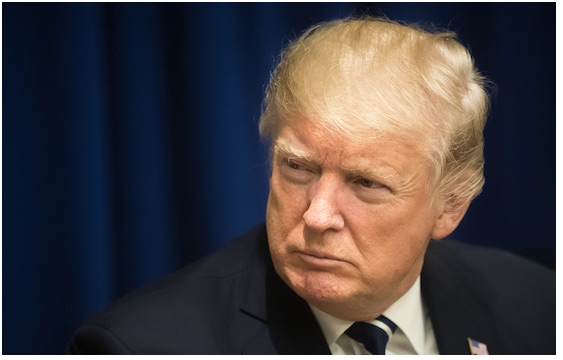Matt Purple
Their obsession with Vladimir Putin misses the point and obscured the high cost of our military misadventures.
He’s a wily one, that Vladimir Putin. Consider all that he’s managed to accomplish over the last 24 hours, according to the geopolitical wizards on Twitter. At Putin’s behest, President Donald Trump on Wednesday announced a withdrawal of American troops from Syria. That’s now cleared the path for Russia to exert control over Damascus, the Middle East, indeed the world itself, because Moscow has at last secured the jewel in its neo-Soviet empire…a strip of chaotic desert in northeastern Syria.
If that’s actually Putin’s thinking, then he’s not playing checkers or chess so much as 13 Dead End Drive right before the chandelier falls on his head. Yet that was the gist of the analysis from America’s smart set yesterday. Think tank functionaries and journalists and right-wing radio hosts were all united in furious opposition to Trump’s Russia-influenced absconding from Syria. Somehow they’ve yet to muster similar unanimous outrage over our massive national debt or our loneliness-cum-opioid crisis, but I’m sure that’s just a matter of time. Until then, the Syria page of Washington’s mad-lib book yields all the usual buzzwords: “adversaries,” “strength,” “surrender.”
So far as Putin goes, he isn’t trying to flip Syria behind some newly hung Iron Curtain. His aim is a return to the pre-civil war status quo: a friendly Assad regime, a safe Russian naval base in Tartus, and an end to jihadist-fueled instability across Syria. That latter one is especially important to understanding the Russian psyche. Putin fears nothing more than a weak state besieged by armed rogues, a result of his formative experiences in chaotic Dresden after the Berlin Wall came down and later amid uprisings in Chechnya. Hence the desire to protect Assad, who will keep the mob from the Tartus door. The real disruptive change, then, won’t come if Putin “wins”; it will come if the United States were to somehow realize its original delusion of overthrowing Assad, which would (further) tear open a power vacuum that would be filled at least in part by jihadists.
And what about if the United States withdraws? Turkish President Recep Tayyip Erdogan is likely to attack the Kurds, which he sees as a threat to his homeland. (Though even there, the crystal ball is murky. As Joshua Landis pointed out on Twitter yesterday, the Kurds helped fight off Arab rebel militias, and Assad may decide he needs them as allies in post-war Syria.) Some combination of Assadists and Russians will then move in against the straggling rebel and ISIS remnants, the latter of which are still committing horrific atrocities but largely defeated and shut out of major population centers. Syria after that will be changed, tense, bloodstained, aggrieved. But it will be more stable, at least, than it was during the war, perhaps enabling the trickle of refugees returning home to become a gush. And even if that scenario proves too rosy, even if Turkey and Syria somehow end up skirmishing, what is America supposed to do? What justifies the expenditure of another dollar or soldier in a conflict as intractable as that? What net good do we accomplish by planting ourselves in front of a powerful NATO nation on the other side of the globe?
We’ve heard a lot this week about the capital we’re sacrificing by pulling out of Syria: in power, in allies, in something called “credibility” that hawks seem to think functions like Monopoly money. But what about those two resources I just mentioned: dollars and lives? Why do those get so little attention? The United States since 2001 has spent nearly $6 trillion on wars in the Middle East, according to Brown University’s Watson Institute of International and Public Affairs. In Syria, that money has often gone towards gilded banana peels that we then promptly trip over, including two plans to arm rebels that ended up feeding weapons to jihadists and a $500 million program to train fighters that produced about five graduates before being shut down. Meanwhile, America’s infrastructure crumbles. Why shifting money into domestic needs at times such as this is considered “populist” rather than just commonsense, I will never understand.
Then there’s the toll in blood. American soldiers have been killed in Syria, have been put in harm’s way, all for a mission that is both unclear and undeclared. So stark is the contrast between the vague purpose of our wars and their real human losses that it’s become a paramount political issue. Don’t forget what J.D. Vance said to our own Rod Dreher back in 2016 about why working-class voters were swooning for Trump: “Unsurprisingly, southern, rural whites enlist in the military at a disproportionate rate. Can you imagine the humiliation these people feel at the successive failures of Bush/Obama foreign policy?” We can’t be sure how great a role our failed wars played in Trump’s election but they were certainly a factor. I’ll never call it “war weariness,” which has always seemed to me to contain a grain of condescension: just take a nap, dear, and you’ll be ready to nation-build again. But certainly we are fed up with a foreign policy elite that never accomplishes its missions yet whose appetite for military action seems only to grow.
That’s why the silliest thing anyone has written about Syria this week came on Wednesday in a Commentary column by Noah Rothman. Condemning Trump’s troop pullout, Rothman pronounced, “Political commentators and anti-interventionist ideologues will note that withdrawing America’s modest footprint from Syria is popular with the public. But what would you expect? Precisely no one in the political class is making a case for sustained and substantial American intervention in this conflict zone.” Ummm. Maybe I’m just high on the sweet, sweet appeasement, but I don’t think that’s the problem. Lindsey Graham and Jeb Bush argued for intervention in Syria during the Republican presidential primaries; they were crushed. Hillary Clinton went hawkish on Assad; she lost. Their vanquisher, Donald Trump, promised instead to smash ISIS and then get out. You don’t have to like Trump (I don’t) to understand the frantic signal flare that his voters were trying to send up.
Yet on and on the elite freak-out goes, deaf to any message that contradicts its line. “Why didn’t Trump listen to the generals?!” they wail. Because we have a civilian executive, for one, not a military junta. But let’s re-ask that same question, only slightly expanded: “Why doesn’t Trump listen to the military men and women who have fought the wars of the past 17 years?” Were he to, he would find disdain for overseas nation building—55 percent of active duty troops oppose more of it, according to a Military Times poll from 2016. He would hear stories of disillusionment and confusion. He would read laments like that of Dan Grazier, who served in both Fallujah and Afghanistan: “Looking back after more than a decade, it is hard to convince even myself that my platoon helped achieve any lasting contribution in a strategic sense.”
Shouldn’t our poor track record in Afghanistan and Iraq inform our thinking in Syria and lead us to limit the mission? Absolutely not, according to the war pamphleteers, who insist we must blunt a Russia/Iran/Assad axis, which isn’t much of an axis to begin with and which amounts to taking sides in a Muslim sectarian struggle that isn’t any of our business. Also we need to maintain that “credibility” with our allies—funny how that was never an issue when Trump was pulling out of the Iran nuclear deal. And looming above it all, like Andross, is Vladimir Putin. Such a menace is his Italy-sized economy and osteoporotic aircraft carrier that we can’t ever withdraw from Syria, as we did from Vietnam and Iraq the first time around. We must stay put, as Winston Churchill would have intended, forever and ever, amen. I am glad Trump rejected this nonsense and hope he will continue to.
Matt Purple is the managing editor of The American Conservative.




Hear, hear.